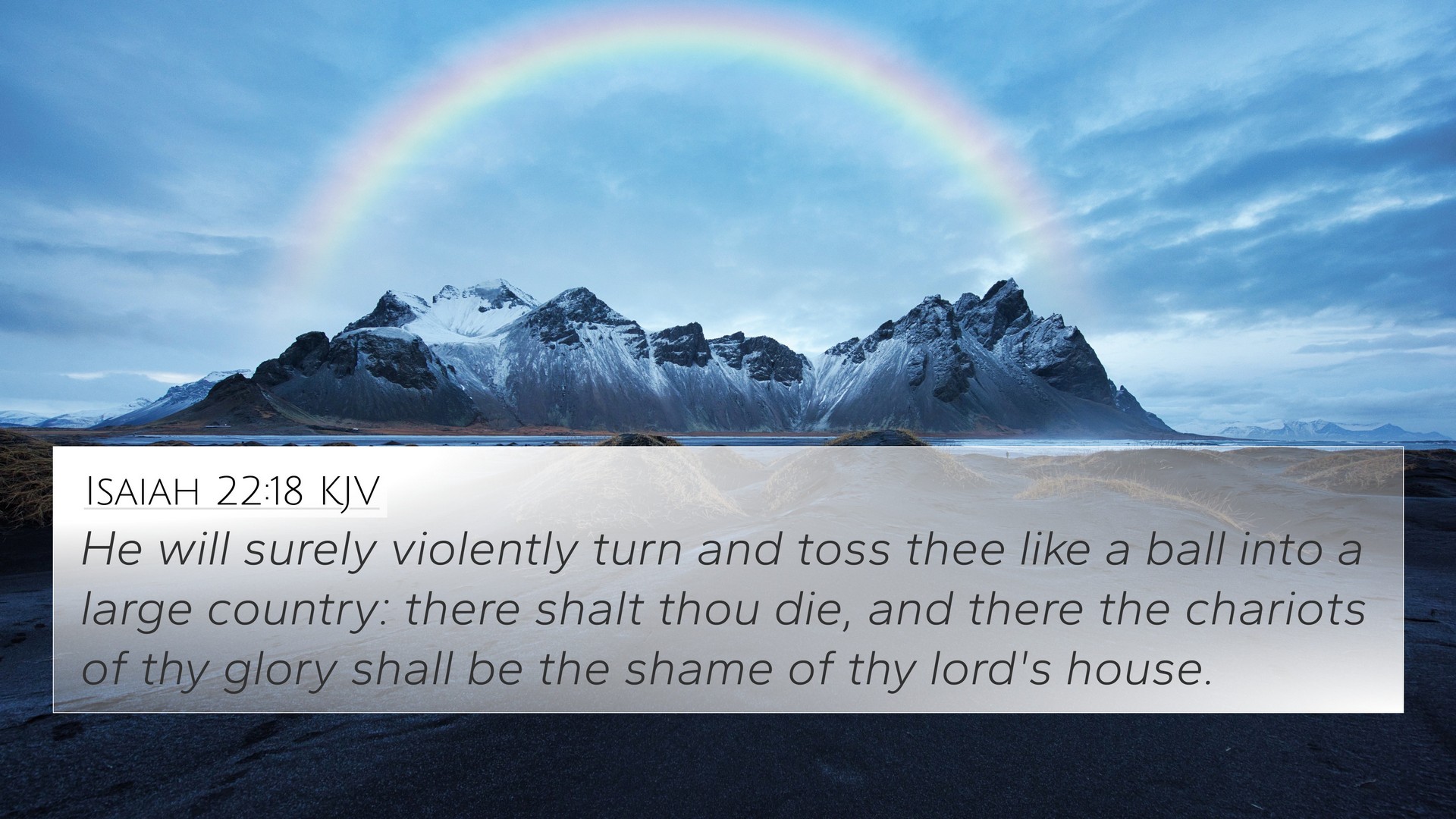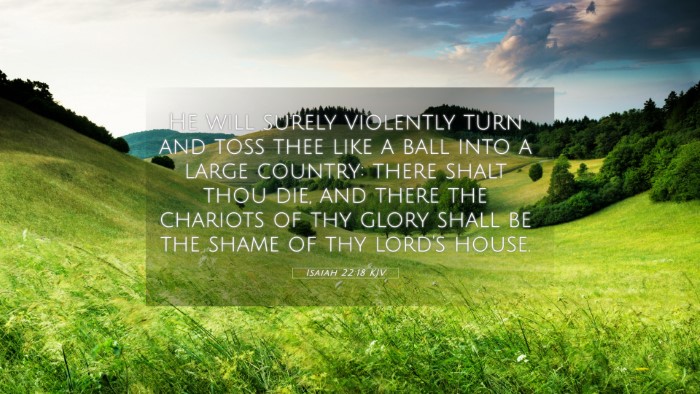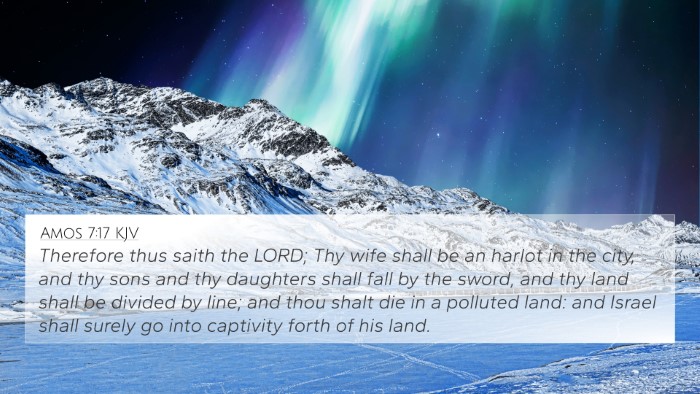Understanding Isaiah 22:18
Isaiah 22:18 states:
"He will surely turn and toss you like a ball into a large country; there you will die, and there your splendid chariots will be, you shame of your master's house."
This verse is rich with meaning and context. Below is a combined summary from several public domain commentaries highlighting the intricate details of this passage.
Verse Context and Background
The context of Isaiah 22 revolves around a prophecy concerning the judgment of the leaders of Jerusalem. Matthew Henry remarks that the leaders had placed their trust in worldly means, neglecting spiritual dependence on God. Albert Barnes adds that this passage is a rebuke directed towards Shebna, a royal steward, whose pride and misguided leadership brought destruction upon the nation.
Adam Clarke emphasizes that the metaphor of being tossed like a ball expresses the humiliation that Shebna would face as he is cast out from his position, serving to illustrate that no matter one's status, all are subject to God’s sovereignty.
Key Themes and Interpretations
-
Divine Judgment:
The picture of being tossed into a large country symbolizes the judgment that brings exile, a recurrent theme in biblical texts (see Jeremiah 22:26-27).
-
Human Pride:
Shebna’s pride is highlighted in his ambitions, which contrast starkly with God’s plans. The parallel can be drawn with Proverbs 16:18 about pride preceding a fall.
-
Faith vs. Worldly Reliance:
This verse warns against reliance on material power and influence, echoing the teachings in Matthew 6:19-21 regarding treasures on earth.
Bible Cross-References
Here are several related Bible verses that provide additional insight:
- Jeremiah 22:26-27 - Speaking of exile for disobedience.
- Proverbs 16:18 - A reminder about pride leading to destruction.
- Matthew 6:19-21 - Teaching on treasures in heaven vs. worldly treasures.
- Isaiah 39:5-7 - Discussing the future captivity of Jerusalem.
- Ezekiel 17:15 - A caution against alliances that distance one from God.
- Luke 14:11 - Emphasizing humility.
- 1 Peter 5:6 - An encouragement to be humble before God.
Thematic Connections in Scripture
This verse connects with a wider narrative, particularly regarding the fate of leaders who abandon God for earthly power. In a comparative analysis of these themes, one can see how the message of divine judgment is interwoven throughout both the Old and New Testaments. For instance, connections can be made to:
- 1 Corinthians 3:12-15 - Which discusses the test of works and the ultimate judgment.
- Revelation 3:15-16 - The call to not be lukewarm but passionate in faith.
Conclusion
In summary, Isaiah 22:18 serves as a profound reminder of God's authority over human affairs, especially regarding leadership impacted by pride and worldly ambition. The interconnected themes of humility, judgment, and reliance on God form a significant part of the Biblical narrative, inviting us to seek a deeper understanding through tools such as a Bible concordance or a bible cross-reference guide for further exploration.
As we engage in cross-referencing Biblical texts, examining how scriptures relate to one another enhances our comprehension of God's word and intentions, guiding us to live in accordance with His will.




